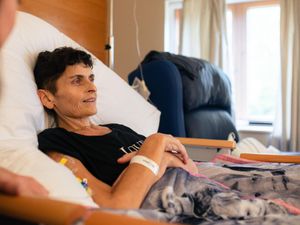Hospital ward to be set up at Stafford Prison to keep inmates onsite
A hospital ward is to be set up at Stafford Prison as part of a move to ensure more inmates can be treated onsite.

In a national first, the specialist eight-bed ward will be created at HMP Stafford and will provide sex offenders from 12 prisons across the West Midlands access to rehabilitation and palliative care.
A specialist care service led by a team of doctors, senior nurses, occupational therapists and physiotherapists will also operate to help prisoners recover from falls, strokes or other medical issues that require rehabilitation.
The change is being introduced to ensure more inmates can be treated in prison rather than having to be taken to an NHS hospital.
It is also hoped the move will cut the amount of time prison officers have to spend bed watching while a prisoner is in hospital.
The care is also designed to improve the patient’s mobility and abilities, allowing them to live independently on their own prison wing, NHS England bosses said.
Diagnosis
The ward will only be open to sex offenders, as Stafford Prison only has those types of inmates.
Nurse Nichola Smith, from Uttoxeter, has helped lead the project, which will initially run for two years.
She said: “This is very much patient-centred care. Prisoners often have a biological age 10 years older than their actual age, so the service is aimed at men and women aged 50 and over, or less if there is a medical need for someone younger to be treated.
“We will support people who have had a variety of health problems or a recent diagnosis, such as diabetes, that has rehabilitation goals that can be achieved in six to eight weeks.”
Healthcare teams from the prisons will refer patients and the programme’s team will assess the patients and decide if they are suitable for the bed base service or out-reach care.
Nichola said: “Inpatient care is only suitable for men who have been imprisoned for a sex offence, because that is HMP Stafford’s prison category. As well as the six rehabilitation beds, there will be two end-of-life care beds so patients, if they choose, can be supported there rather than going out to a hospice.”





